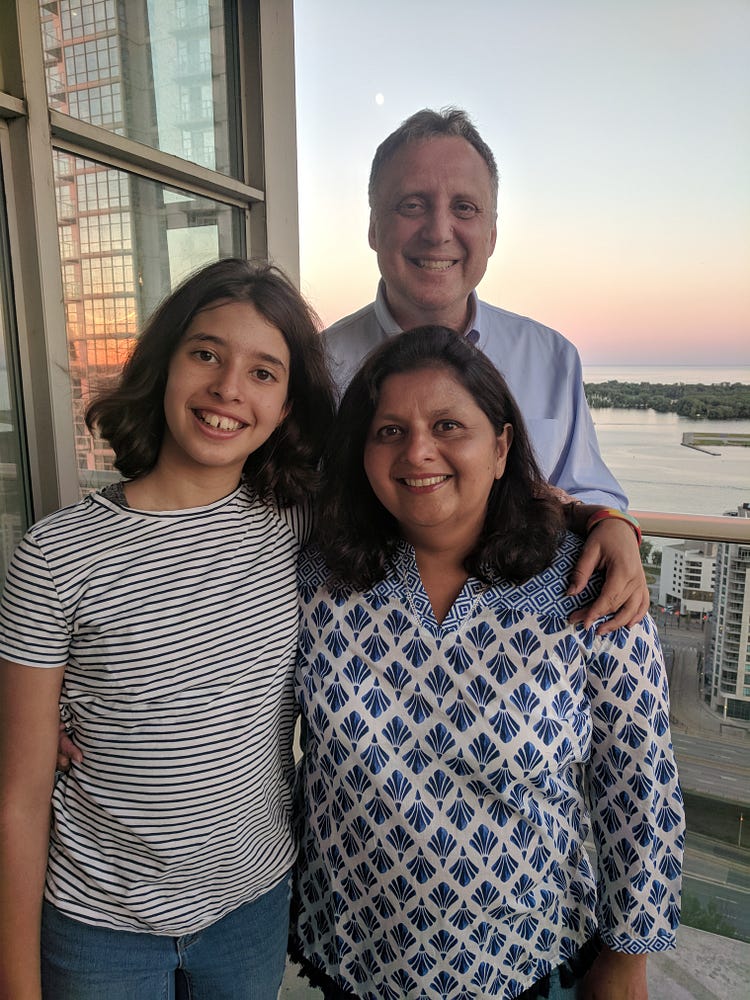This summer, Toronto mom Hasina Lookman is turning city kids into farmers
After a 20-year career spent managing high-profile corporate projects and travelling the globe (visiting more than 45 countries, and living in eight), Hasina Lookman was ready for a change. She wanted the autonomy to do something she loved that would make a difference in the lives of others. But what? Her 10-year-old daughter, Mira, suggested teaching kids about money and travel — two areas in which Hasina has plenty of expertise. So, she started Explorer Hop — a series of “adventure” programs that teach kids financial literacy and global awareness, helping develop financially savvy youth with an appreciation for different cultures.
Recently Hasina’s been bothered that so few city kids know where their food comes from or consider farming a viable career, so this July, Explorer Hop is offering an exciting new summer camp. ‘Future Farmers’ will learn about urban agriculture, and how to set up their own agricultural business. We spoke with her about her work and why it’s important for children to learn about farming and entrepreneurship.
You teamed up with Ripple Farms for this one-of-a-kind program. Can you tell us how that partnership came to be?
‘Future Farmers’ is a unique camp where kids learn about cutting-edge urban vertical farming. Ripple Farms grows their plants in the farm at Evergreen Brick Works in Toronto. Explorer Hop teaches kids about everything: the soil (Mushroom foam), the pebbles (recycled glass), and the innovative use of light. We work with the children to create a step-by-step business model. By the end the week they are running their own market stall selling produce they’ve grown.
Why do city kids need to know about farming, anyway?
Because they eat food! I believe city kids need to know more about farming because without understanding the process and work involved in growing, transporting and selling food, they can’t really appreciate it. We spend most summers taking our kids to farms where they experience firsthand what is involved in growing their produce.
Another reason [for the program] is to try to combat the food waste that goes on in any city. When we teach kids about starting their own business, we also teach them how to identify waste and turn it into something usable. When kids put effort into growing their produce, they have more appreciation for food and less desire to waste it. And farming is something kids can do in their apartments and smaller urban homes.

What is the biggest challenge you face as a mom and entrepreneur?
I want to ensure my children are educated in a such a way that they are independent and understand the need to live a sustainable life. It is crucial my children know they’re part of something bigger, and that they should be prepared to make changes to make our world better. We want all children to understand how money works because we believe that when kids learn about money, it shows them how they can help create a more friendly world. Learning how to manage a portfolio, or starting your own company is a stepping stone towards a child having the skills to contribute to making this world better. We also realized that once we began empowering kids with knowledge about money, conversations at home changed. It wasn’t solely about what they wanted for themselves anymore, but what was better for the entire family.
How does the work you do impact your family life?
Teaching kids about investing and starting their own business is a fulfilling experience. I often have my daughter come along to these camps and after-school programs and am amazed at the depth of the conversations we have at the dinner table about sustainability and money issues. We started this business with the objective to empower kids with financial knowledge, so they’d be part of the conversation at home.
A child who learns how to set up their own business, even something as simple as a lemonade stand, understands how to start any project — be it in the community or at school. Parents often tell us that their children are too young to learn about money, but we believe if a child can spend money in a store, then there is a benefit. Parent feedback from this course is immensely positive, with many telling us how much they’ve learned from their child.
‘Future Farmers’ goes one step further, giving kids aged 10–13 an exciting behind-the-scenes look at a state-of-the-art facility, and challenging them to create something new or try out a new idea on their own.

